
Are Succulent Plants Safe for Cats to Nibble On?
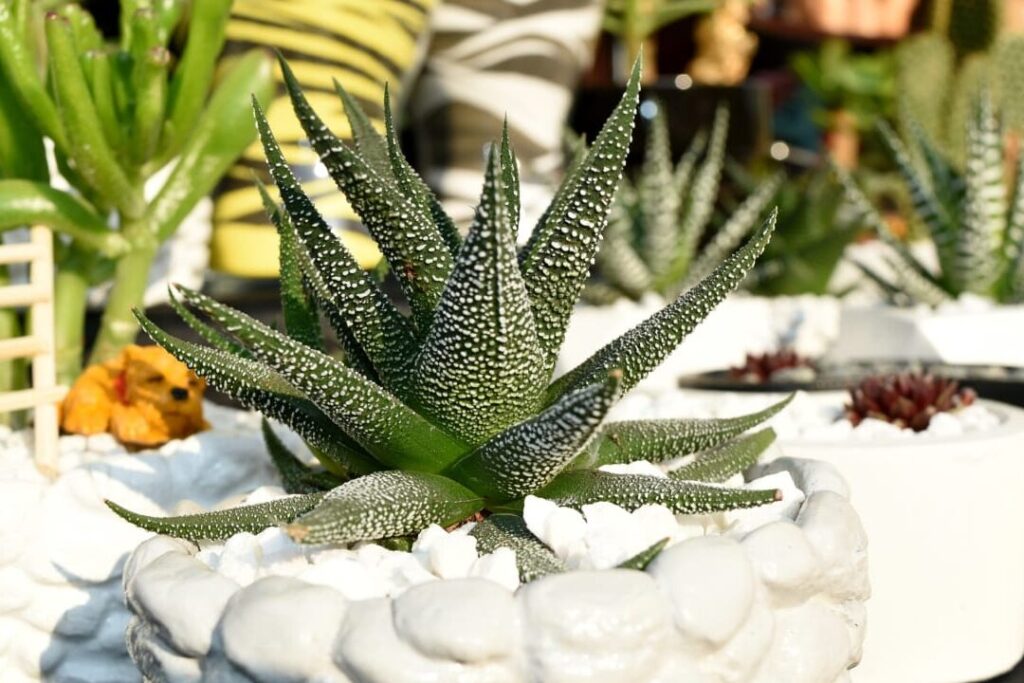
Succulent plants have become increasingly popular as decorative houseplants due to their unique shapes and vibrant colors. These plants are known for their ability to store water in their leaves, stems, and roots, making them resilient to dry conditions. While succulents can be a beautiful addition to any home, it is important to consider the safety of these plants, especially if you have cats.
We will explore whether succulent plants are safe for cats to nibble on. We will discuss the common types of succulents and their potential toxicity to cats. Additionally, we will provide tips on how to keep your cats away from succulents and suggest cat-friendly alternatives for indoor plants. By the end of this article, you will have a better understanding of whether it is safe to have succulent plants in your home if you have cats and how to ensure the well-being of your feline friends.
- Yes, most succulent plants are safe for cats to nibble on
- However, some succulents can be toxic to cats, so it's important to know which ones are safe
- Stick to non-toxic succulent varieties such as hens and chicks, echeverias, and sedums
- Keep toxic succulents like aloe vera, jade plants, and snake plants out of reach of your cats
- If your cat does ingest a toxic succulent, contact your veterinarian immediately
- Provide alternative safe plants for your cat to nibble on, such as cat grass or catnip
- Frequently Asked Questions
Yes, most succulent plants are safe for cats to nibble on
While it is always important to be cautious when introducing new plants into your home, most succulent plants are safe for cats to nibble on. This is great news for all the cat owners out there who also love having indoor gardens filled with beautiful succulents.
Succulent plants, known for their thick and fleshy leaves, are generally non-toxic to cats. However, it is important to note that some succulent varieties may still cause mild gastrointestinal upset if ingested in large quantities. Therefore, it's essential to monitor your cat's behavior around these plants and ensure they don't overindulge.
Safe Succulent Plants for Cats
If you are a cat owner looking to add some succulents to your indoor garden, here are a few safe options:
- Hens and Chicks (Sempervivum spp.): These hardy succulents are safe for cats and come in a variety of colors and textures.
- Christmas Cactus (Schlumbergera spp.): This popular holiday plant is not only safe for cats but also adds a beautiful burst of color to your home.
- Echeveria: Known for their rosette-shaped leaves, echeverias are safe for cats and come in a wide range of sizes and colors.
Precautions to Take
While these succulent plants are generally safe for cats, it's important to take a few precautions to ensure your feline friend's well-being:
 Causes of White Film on Succulent Leaves: A Comprehensive Guide
Causes of White Film on Succulent Leaves: A Comprehensive Guide- Placement: Keep your succulents in areas that are out of your cat's reach, such as high shelves or hanging planters.
- Monitoring: Keep an eye on your cat when they are near the plants to prevent any excessive nibbling.
- Identification: Make sure you can accurately identify the succulent plants in your home to ensure they are non-toxic to your cat.
By following these precautions and choosing cat-safe succulent varieties, you can create an indoor garden that not only adds beauty to your home but also provides a safe environment for your beloved feline companion.
However, some succulents can be toxic to cats, so it's important to know which ones are safe
While succulent plants are known for their low maintenance and charming appearance, it's crucial to consider the safety of our furry friends when bringing them into our homes. Cats are curious creatures, and their tendency to nibble on plants can lead to potential health hazards.
It is important to note that not all succulents are toxic to cats. However, it's crucial to be aware of which ones pose a risk, especially if you have a mischievous feline companion.
Here is a list of succulents that are generally considered safe for cats:
- Hens and Chicks (Sempervivum spp.): These adorable rosettes are not only safe for cats but can also add a touch of charm to your indoor garden. Cats may be tempted to play with the tiny offsets, but they are non-toxic if ingested.
- Echeveria: These popular succulents come in various shapes and colors, making them a favorite among plant enthusiasts. Good news for cat owners – Echeverias are generally non-toxic to cats, so you can enjoy their beauty worry-free.
- Christmas Cactus (Schlumbergera spp.): Known for their colorful blooms during the holiday season, Christmas Cacti are safe for cats. While cats may be intrigued by the dangling flowers, they pose no threat if consumed.
- Zebra Plant (Haworthia spp.): With their distinctive white stripes, Zebra Plants are not only visually striking but also safe for cats. However, it's always a good idea to discourage your furry friend from excessive nibbling.
On the other hand, some succulents can be harmful or even toxic to cats. It is crucial to keep these plants out of your feline friend's reach to avoid any potential health issues. Here are a few succulents that are known to be toxic to cats:
- Jade Plant (Crassula ovata): Although popular among succulent enthusiasts, Jade Plants contain a substance called bufadienolides, which can be toxic to cats if consumed in large quantities.
- Aloe Vera: While Aloe Vera has numerous benefits for humans, it can be harmful to cats if ingested. The gel inside the plant contains compounds that can cause gastrointestinal issues in felines.
- Kalanchoe: These vibrant flowering succulents should be kept away from cats, as they contain compounds that can cause vomiting, diarrhea, and other adverse effects if ingested.
- Pencil Cactus (Euphorbia tirucalli): This unique succulent, also known as Milk Bush, contains a milky sap that can cause skin irritation and gastrointestinal issues in cats.
As a responsible pet owner, it's essential to educate yourself about the plants you bring into your home. If you're unsure about the safety of a particular succulent, it's always best to consult with a veterinarian or do thorough research to ensure the well-being of your furry friend.
 Uncovering Common Causes of White Spots on Succulents
Uncovering Common Causes of White Spots on SucculentsStick to non-toxic succulent varieties such as hens and chicks, echeverias, and sedums
If you're a cat owner and also a plant enthusiast, you may find yourself wondering whether it's safe for your furry friend to nibble on your succulent plants. While some plants can be toxic to cats, there are non-toxic succulent varieties that you can confidently include in your indoor garden.
Non-Toxic Succulent Varieties
When it comes to choosing succulents that are safe for your cat, it's important to stick to non-toxic varieties. Here are a few popular non-toxic succulent options:
- Hens and Chicks: This succulent variety, also known as sempervivums, is safe for cats if ingested. They are easy to care for and come in a variety of colors and textures.
- Echeverias: Echeverias are another cat-friendly succulent option. These rosette-shaped plants are known for their vibrant colors and are safe for your feline friend.
- Sedums: Sedums, also known as stonecrops, are safe for cats and can add a unique touch to your succulent collection. They are known for their ability to thrive in various conditions.
It's important to note that while these succulents are generally safe for cats, it's best to monitor your pet's behavior around them. Some cats may still have sensitivities or allergies to certain plants, so it's always a good idea to consult with your veterinarian if you notice any unusual symptoms.
If you want to incorporate succulents into your cat-friendly indoor garden, opt for non-toxic varieties such as hens and chicks, echeverias, and sedums. Remember to observe your cat's behavior around plants and seek professional advice if you have any concerns. With the right choices and precautions, you can enjoy the beauty of succulents while keeping your furry friend safe.
Keep toxic succulents like aloe vera, jade plants, and snake plants out of reach of your cats
If you are a plant lover and a cat owner, you may have wondered whether it's safe for your feline friend to nibble on succulent plants. While some succulents are harmless, there are a few varieties that can be toxic to cats if ingested. It's important to be aware of these plants and take appropriate measures to keep them out of your cat's reach.
 Is the Firestick Succulent Toxic to Pets and Humans?
Is the Firestick Succulent Toxic to Pets and Humans?Aloe Vera: Aloe vera is a popular succulent known for its soothing properties. However, the gel inside its leaves contains a substance called anthraquinone glycosides, which can cause vomiting, diarrhea, and even tremors in cats if ingested. It's best to keep aloe vera plants away from your furry friends.
Jade Plants: Jade plants, also known as money trees or friendship trees, are common indoor succulents. While they are considered non-toxic to humans, they can be harmful to cats if consumed in large quantities. Ingesting jade plants can lead to vomiting, depression, and even abnormal heart rhythm in felines.
Snake Plants: Snake plants, also called mother-in-law's tongue, are another popular succulent that should be kept away from cats. These plants contain saponins, which can cause gastrointestinal upset, drooling, and even tremors if ingested by cats.
It's important to note that even non-toxic succulents can still cause mild digestive issues in cats if consumed in large amounts. Therefore, it's always a good idea to monitor your cat's interaction with all plants and ensure they are not overindulging.
To keep your curious cat safe, consider the following precautions:
- Place toxic succulents out of your cat's reach, either by hanging them or keeping them on high shelves.
- Provide your cat with alternative safe plants, such as cat grass or catnip, to satisfy their natural urge to chew on greenery.
- Observe your cat's behavior around plants and discourage any interest in chewing on them using positive reinforcement and distractions.
While succulent plants can be a beautiful addition to your home, it's essential to prioritize your cat's safety. By understanding which succulents are toxic and taking appropriate precautions, you can create a pet-friendly environment where both your plants and your cats can thrive.
If your cat does ingest a toxic succulent, contact your veterinarian immediately
 Understanding the Causes of Brown Tips on Fuzzy Succulent Leaves
Understanding the Causes of Brown Tips on Fuzzy Succulent LeavesIt is a common sight to see cats nibbling on plants, but as a responsible pet owner, it is crucial to ensure that the plants they have access to are safe for them. Succulent plants have gained popularity in recent years due to their unique beauty and low maintenance requirements. However, it is essential to know whether succulent plants are safe for cats to nibble on.
The answer to this question is not straightforward. While many succulent plants are safe for cats, there are some varieties that can be toxic if ingested. It is crucial to identify which succulent plants are safe and which ones pose a risk to your feline friend's health.
Safe Succulent Plants for Cats
Fortunately, there are several succulent plants that are considered safe for cats. These plants are non-toxic and can be a great addition to your indoor garden. Here are some cat-friendly succulents:
- Haworthia - This small, rosette-shaped succulent is safe for cats and adds a touch of elegance to any space.
- Spider Plant (Chlorophytum comosum) - While not technically a succulent, spider plants are safe for cats and also known for their air-purifying qualities.
- Christmas Cactus (Schlumbergera) - This popular holiday plant is safe for cats and adds a festive touch to your home during the holiday season.
Toxic Succulent Plants for Cats
On the other hand, there are succulent plants that can be toxic to cats if ingested. It is crucial to keep these plants out of your cat's reach to prevent any potential health issues. Here are some examples of succulent plants that are toxic to cats:
- Aloe Vera - Although aloe vera has many beneficial properties for humans, it can cause vomiting and diarrhea in cats if ingested.
- Jade Plant (Crassula ovata) - Jade plants contain a compound called bufadienolides, which can be toxic to cats and cause symptoms like vomiting and depression.
- Kalanchoe - This vibrant succulent contains cardiac glycosides, which can be harmful to cats if ingested in large quantities.
If you suspect that your cat has ingested a toxic succulent, it is crucial to contact your veterinarian immediately. They can provide guidance on the necessary steps to take and determine if any treatment is required.
Preventing access to toxic succulents is the best way to keep your cat safe. Place these plants in areas that are inaccessible to your furry friend or opt for cat-friendly succulents instead. Additionally, providing your cat with safe and appropriate alternatives like cat grass can help satisfy their natural urge to chew on plants.
Remember, the health and safety of your cat should always be a top priority. By being mindful of the plants you have in your home and taking precautions, you can create a safe environment for your feline companion to enjoy.
 Are Succulents Toxic to Cats? Understanding the Potential Danger
Are Succulents Toxic to Cats? Understanding the Potential DangerProvide alternative safe plants for your cat to nibble on, such as cat grass or catnip
Succulent plants have gained popularity in recent years for their unique and low-maintenance qualities. These plants are known for their thick, fleshy leaves, which store water and enable them to survive in arid conditions. While succulents can be a beautiful addition to your home or garden, it's important to consider the safety of your furry friends, especially cats.
Can cats safely nibble on succulent plants?
As much as we adore our feline companions, it's crucial to be mindful of the plants we introduce to our living spaces. While succulents are generally non-toxic, some varieties can cause discomfort or even pose a threat to cats if ingested. The thick, juicy leaves of succulents may seem enticing to cats, but it's essential to know which ones are safe and which ones are not.
Safe alternatives for your cat to nibble on
If you want to provide your cat with a safe and enjoyable nibbling experience, consider offering them alternative plants specifically designed for feline consumption. These plants not only satisfy their natural urge to chew but also provide several health benefits. Two popular options are:
- Cat grass: Also known as "dactylis glomerata," cat grass is a type of grass that cats love to nibble on. It's easy to grow and readily available in pet stores or online. Cat grass aids in digestion by providing essential fiber and can help prevent hairball formation, which is a common issue among cats.
- Catnip: Catnip, scientifically known as "Nepeta cataria," is a herb that cats find irresistible. It can be grown indoors or outdoors and is safe for cats to nibble on. Catnip can induce a sense of euphoria in cats, leading to increased playfulness and reduced stress levels.
By offering these safe alternatives, you can redirect your cat's attention away from potentially harmful succulent plants and provide them with a satisfying and enjoyable nibbling experience.
Precautions to keep in mind
 Unveiling the Causes of White Powdery Substance on Succulents
Unveiling the Causes of White Powdery Substance on SucculentsWhile cat grass and catnip are generally safe for cats, it's crucial to monitor their consumption. Some cats may develop an upset stomach or experience mild digestive issues if they consume large quantities. It's best to introduce these plants gradually and observe your cat's response. If you notice any adverse effects or unusual behavior, consult your veterinarian.
Additionally, if you have a cat that loves to explore and chew on plants, it's wise to keep your succulent plants out of their reach. Place them in elevated areas or use protective barriers to prevent accidental ingestion.
While succulent plants can be a stunning addition to your home, it's crucial to prioritize the safety and well-being of your furry friends. By providing alternative safe plants for your cat to nibble on, such as cat grass or catnip, you can satisfy their natural instincts while ensuring their health and happiness.
Frequently Asked Questions
Are succulent plants safe for cats to nibble on?
While some succulent plants are safe for cats, many can be toxic if ingested. It's best to research specific plants and consult with a veterinarian.
How often should I water my succulent plants?
Succulents have low water needs and should be watered sparingly. As a general rule, water them when the soil has completely dried out, usually every 1-2 weeks.
Do succulent plants need direct sunlight?
Most succulents thrive in bright, indirect sunlight. While they can tolerate some direct sunlight, prolonged exposure can lead to sunburn and damage to the plant.
Can succulent plants survive in cold temperatures?
Succulents are typically adapted to warm and arid climates, so they may not survive freezing temperatures. It's best to protect them or bring them indoors during colder months.
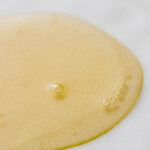 Is Neem Oil Safe for Pest Control on Succulents?
Is Neem Oil Safe for Pest Control on Succulents?If you want to read more articles similar to Are Succulent Plants Safe for Cats to Nibble On?, you can visit the Pests and Diseases category.

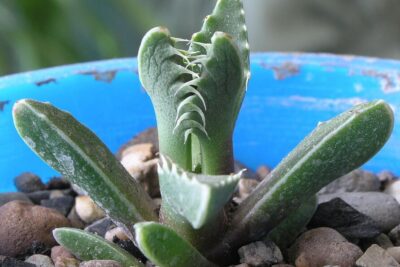

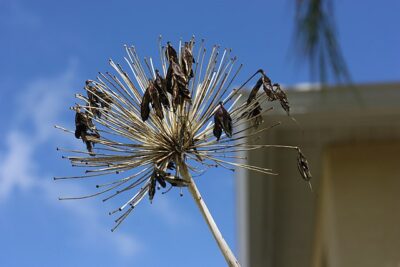
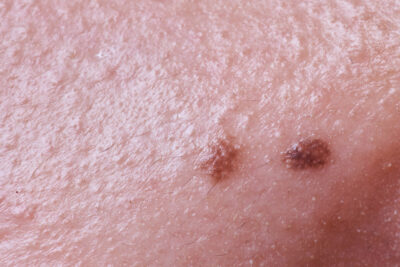
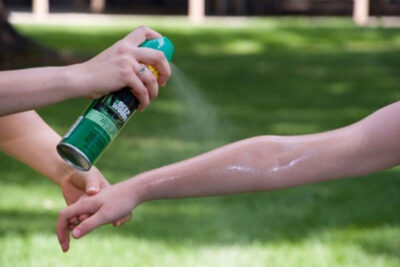
You Must Read